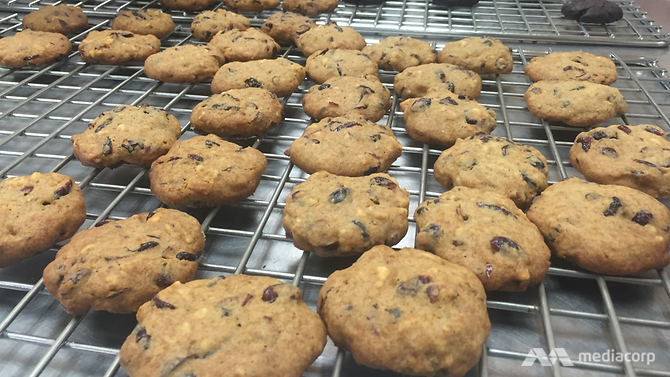Label discrepancies, chemicals linked to cancer found in cookies, pastries: Hong Kong consumer body
16 January, 2019

Food producers in Hong Kong have been urged to improve their recipes after a test on cookies and sweet pastries found that most samples contained genotoxic carcinogens, chemicals which have been linked to cancer.
Hong Kong’s Consumer Council tested 58 types of cookies and pastries - including almond puffs, egg rolls and palmiers - focusing on the amount of preservatives, contaminants, nutrient content, as well as the accuracy of nutrition labels.
Results showed that 90 per cent of the samples contained the genotoxic carcinogens glycidol and acrylamide, said the consumer watchdog in a press release on Tuesday (Jan 15).
Glycidol is formed when oil is heated to high temperatures during refining, while acrylamide can be found in starchy foods during high-temperature cooking.
No maximum limit for these two chemicals have been set by the Food and Agriculture Organization and World Health Organization. "The advice for consumers is the less consumption the better," said Hong Kong's Consumer Council.
The third chemical compound tested for was 3-MCPD.
"The models with a higher content of glycidol and 3-MCPD contained mostly shortening or refined vegetable oil, while the models in which no or low levels of contaminants were detected using butter as the fat ingredient," said Hong Kong's consumer watchdog. "Consumers should take note before purchase."
It added that test findings have been sent to the Centre for Food Safety.
DISCREPANCIES FOUND IN NUTRITION LABELS
Of the products which contained nutrition labels, 29 were found to have discrepancies in their declared and actual values.
The sugar content in nine samples, sodium content in 14 samples, saturated fatty acid content in seven samples and trans fatty acid content in eight samples were found to have exceeded the declared values by more than 20 per cent.
In the most serious case, the sugar content in a cookie product was 22.6g/100g, far exceeding the declared value of 7.3g/100g. This flouts standards set by the Centre for Food Safety, said the consumer body.
“The council stressed that food safety and health are crucial consumer rights and urged the producers to improve their recipes to minimise contaminants in food products, reduce the use of preservatives and antioxidants, and introduce low sugar, low fat, high fibre ingredients to give consumers more healthy choices,” said Hong Kong's consumer council.
It also stressed that accurate nutrient labels are “essential”, as inaccurate labels can affect those with chronic diabetes and heart disease.
TAG(s):
